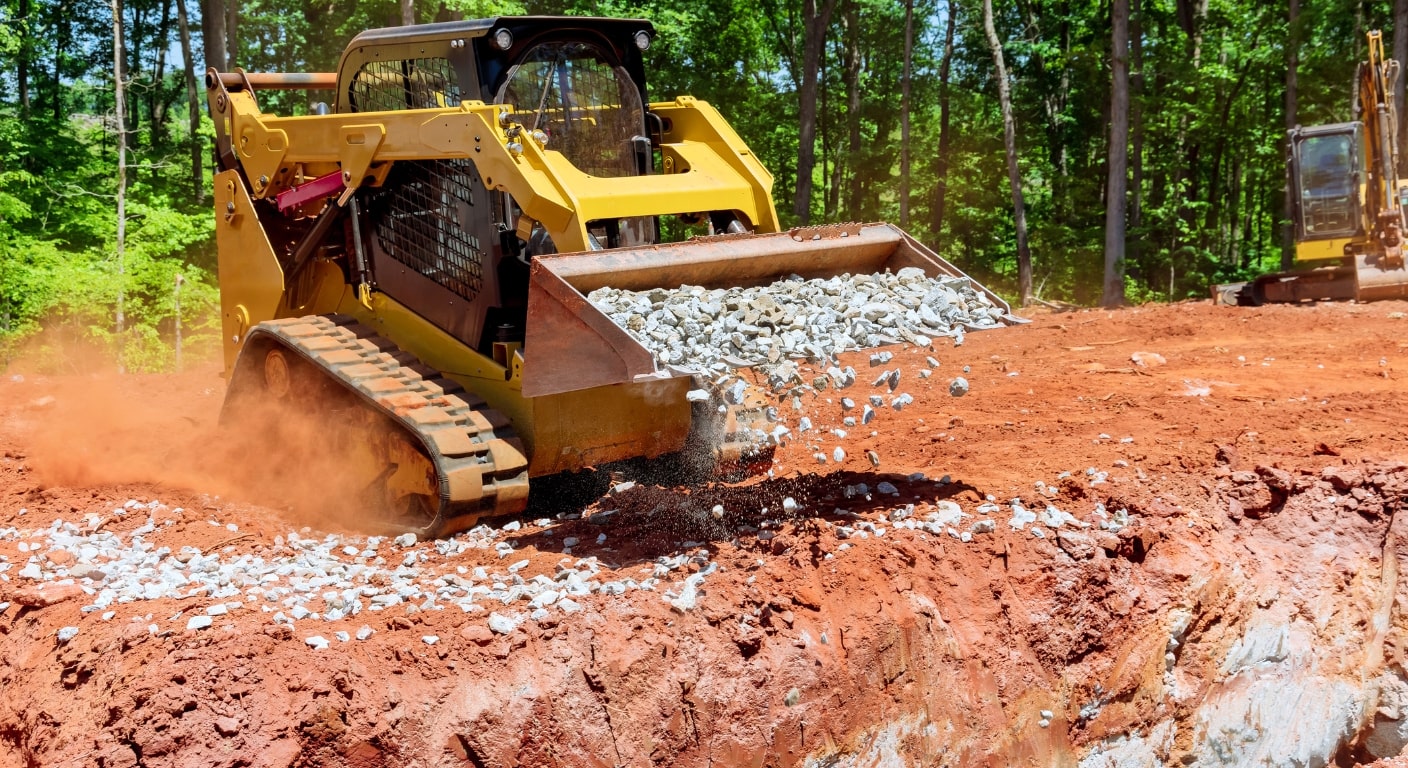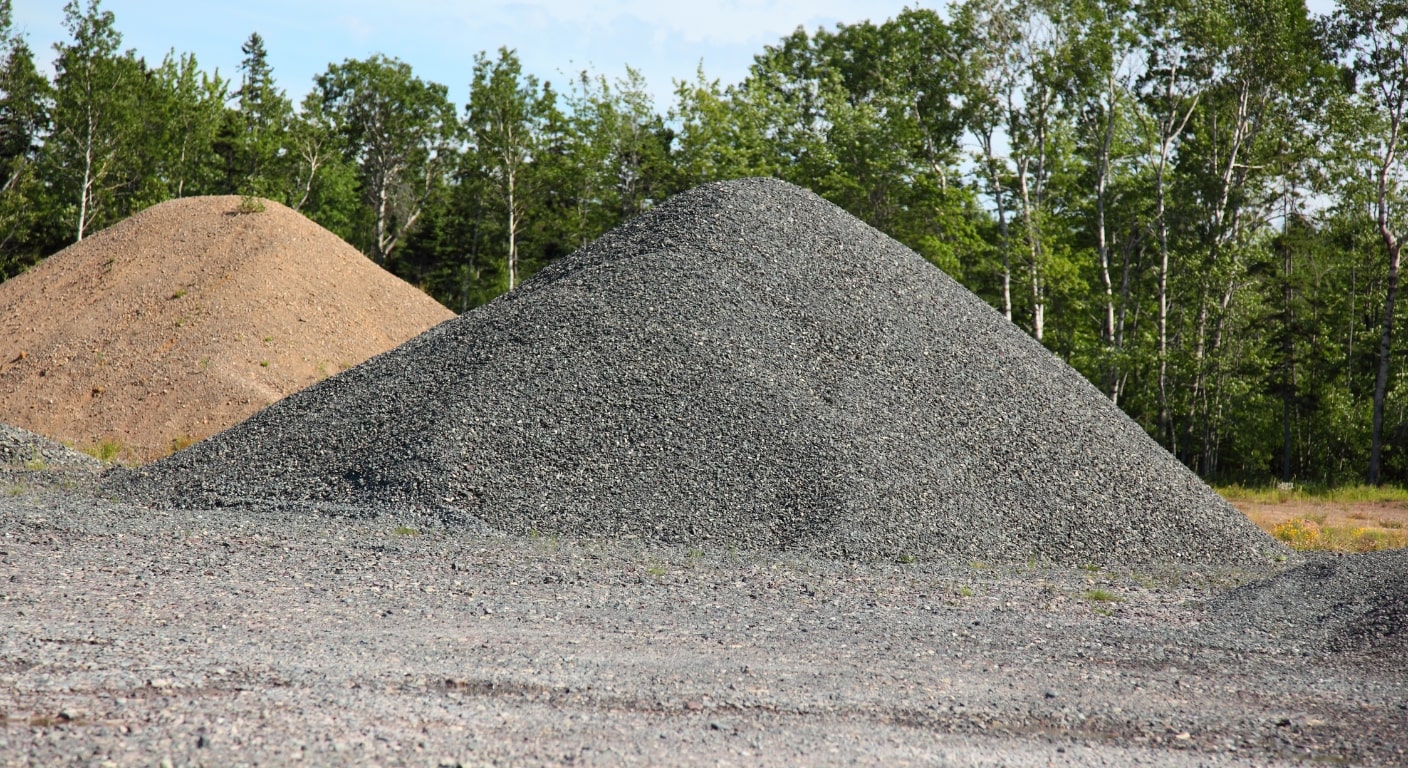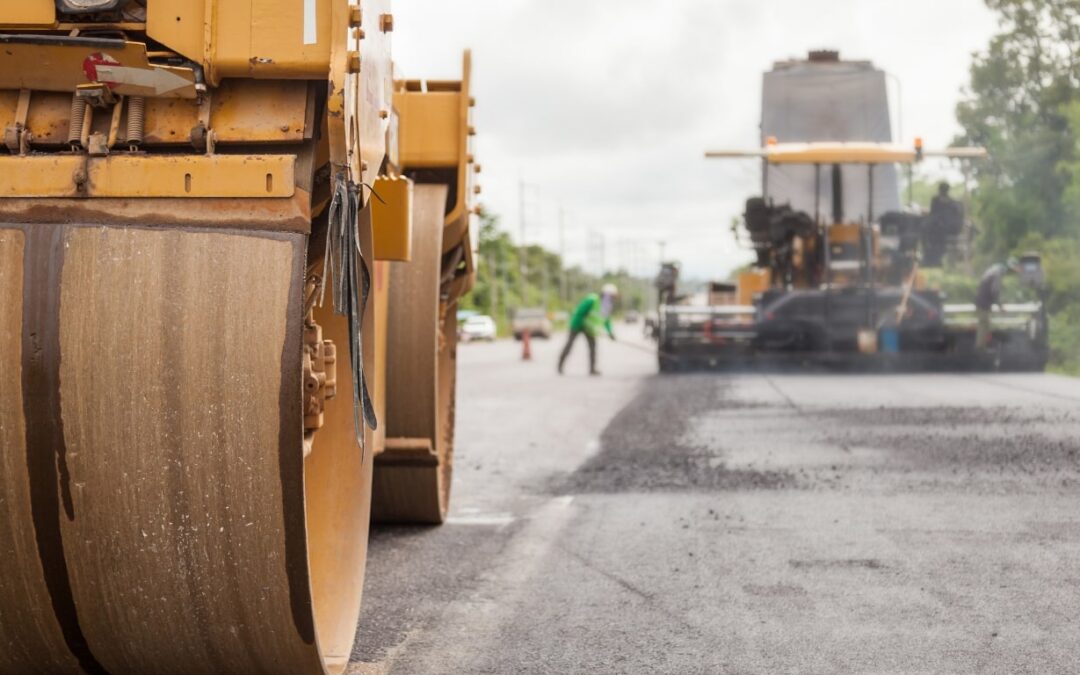Choosing the right road construction rock matters in road construction. The choice of rock is directly linked to the durability, longevity, and a strong foundation. Every foundation starts with the right road construction rock, and the right grade and type of aggregate is not just a technical detail. It is the critical decision that will affect everything about the road, from its load-bearing capacity to maintenance to drainage capabilities.
Key Criteria for Road Construction Rock
Choosing the right road construction work involves an evaluation of several critical factors that define performance, longevity, and cost-effectiveness. An appropriate criterion should have:
- Strength: Road construction rock that withstands heavy loads without breaking down, features high compressive strength that prevents deformation under traffic.
- Durability: Durable aggregates reduce long-term maintenance needs in road construction, especially because rocks remain exposed to the elements.
- Drainage Capability: Roads must have proper drainage to prevent water buildup, which then weakens the road base, leading to potholes or structural failures.
- Cost & Availability: While quality is key, local availability and transport costs play a major role. An ideal rock should balance budget constraints and performance, as well as sourcing convenience.
Some of the main categories of rocks used in road construction include:
- Igneous rocks, such as granite and basalt
- Sedimentary rocks, such as limestone and sandstone
- Metamorphic rocks, such as gneiss and quartzite
Road Base Gravel
Road base gravel refers to the foundational material used in road construction. It sits beneath concrete, asphalt, or other surface treatments. Road base gravel creates a stable base that distributes weight evenly, which prevents shifting, rutting, and uneven settlement.

Common Compositions and Grading Standards
Typically, road base gravel comprises more than one material. The most common road base gravel composition contains:
- Crushed Stone: It is the primary component of road base gravel, and it consists of different types of crushed gravel depending on the needed structural integrity.
- Gravel: These are smaller pieces of pebbles or rock, added to the road base gravel mixture for additional stability and drainage.
- Sand: Sand fills the gap between larger rocks, helping to create a solid and compact road base.
- Fines: These are fine particles like clay and silt, which fill the smallest gaps in the composition. The fines are what bind the larger particles together.
Particle size guidelines are what define the required density, proper drainage, and stability.
Advantages for Stability and Load Distribution
Stability and load distribution are special considerations when making road base gravel. Stability is what creates the road’s strong and compact foundation, and load distribution is what spreads the weight evenly to protect the subgrade. Stability and load distribution enhance road longevity, which means less maintenance costs and safer travel for vehicles.
Crushed Granite for Roads
Crushed granite is a popular choice in road construction projects, and for good reasons. Often, engineers, contractors, project managers, and municipal buyers will choose crushed granite because of its superior durability and strength when compared with other aggregates. Crushed granite holds up well under heavy traffic, which translates to longer-term reliability.
Performance Characteristics
Crushed granite for roads is known for its unique performance characteristics, including:
- Hardness: Granite is one of the hardest natural stones, meaning that it would be hard for it to break down under pressure.
- Angularity: Crushed granite is made by crushing large boulders, which results in granite forming sharp, angular edges that interlock tightly when used in road foundations. No matter what, that interlocking minimizes shifting or rutting.
- Resistance to Weathering: Granite is highly resistant to weather changes, such as excessive rain, freezing conditions, and general weathering.
Typical Applications and Cost Considerations
Crushed granite for roads is commonly used as a road base layer, for high-traffic access roads, and in the construction of rural roads. Crushed granite for roads has an excellent load-bearing capacity and low maintenance needs.
Even though there is a need to use standard gravel in road construction, the long lifespan of crushed granite offsets the initial expense. The cost of crushed granite for road construction should not be a deterrent, especially because it comes with enhanced performance due to its hardness, resistance to weathering, and angularity.

Highway Aggregate
Highway aggregate is a term used to define crushed stone, sand, gravel, and any other mineral materials used in the construction of roads. Almost always, highway aggregate is the primary component in road construction. It applies in the construction of sub-base layers, base courses, asphalt, or concrete pavements.
A major highway and any other large-scale infrastructure must use highway aggregate that meets strict engineering and quality specifications. These specifications are standards that describe the relevant characteristics and properties of highway aggregate based on its intended use.
- Large-Size Aggregates: Large-size aggregates have a maximal particle size, sievable and non-sievable aggregates, mass distribution above and below 90mm or 250mm, and resistance to fragmentation.
- Graded Aggregate Material for Bases or Subbases for Highways or Airports: The specifications for graded aggregate for base or sub-base layers in highways or airport pathways include the requirement for particle size, distribution, fines, and durability.
- Unbound Mixtures: Unbound mixtures refer to natural, manufactured, or recycled aggregate with upper sieve sizes of 5.5mm to 90mm, and durability, shape, and grading specifications. They can be used on roads, trafficked areas, and airfields.
The most common specifications include gradation or size distribution to ensure effective interlocking, strength for resistance to crushing, durability to ensure weather resistance, cleanliness to reduce weakened bonding, and angular shape for better interlocking.
How Aggregate Size, Cleanliness, and Composition Affect Pavement Performance
- Aggregate Size: Aggregate size determines the strength and load-bearing capacity of pavements. Smaller aggregates enhance compaction and smooth surface finishes on pavements.
- Cleanliness: Clean highway aggregate guarantees strong adhesion between the binder and the aggregate.
- Composition: The mineralogical makeup of highway aggregate affects a pavement’s skid resistance, overall lifespan, and weather resistance.
Compliance With DOT or Local Standards
Highway aggregate must comply with DOT/local highway authority guidelines that establish the limits for gradation, gravity, absorption, abrasion values, and deleterious materials.
Paving Base Materials
Paving base materials are those used to form the structural foundation of roadways. These materials have a direct influence on the longevity of the pavement. Some of the most common paving base materials include:
- Limestone: Limestone is a common paving base material, often preferred for being relatively inexpensive and easy to compact.
- Basalt: Basalt is highly durable, strong, and has abrasion resistance.
- Recycled Concrete Aggregate: Recycled concrete aggregate is increasingly used as a sustainable alternative, and its performance matches that of natural aggregates.
How to Select the Right Paving Base Materials
Several factors are used to determine the right paving materials for different traffic loads and climates.
- Low-absorption, durable aggregates are suitable for wet or freeze-thaw climates. Basalt and granite fall under this category, and they are resistant to moisture damage.
- Limestone and other softer aggregates are suitable for dry climates.
- High-strength, abrasion-resistant pathways, such as crushed granite or basalt, are suitable for heavy-load highways and industrial pavements.
- Recycled concrete or natural gravel bases are suitable for pedestrian pathways or light-load roads.
Innovations in Sustainable or Recycled Base Materials
Recent technological innovation is reshaping the world of highway construction as far as paving materials are concerned. There is Recycled Concrete Aggregate (RCA) that now reduces landfill waste and reduces the need for natural stone. Reclaimed Asphalt Pavement (RAP) is an innovative way to reduce environmental destruction and construction costs when it is incorporated into base layers. Geosynthetics Integration has seen the creation of geogrids and geotextiles that enhance weaker base materials.
Comparing Rock Types: Pros and Cons
| Rock Types | Pros | Cons |
| Crushed Granite | High resistance to crashing and wear, sharp interlocking edges, and weather-resistance. | Potential slipperiness after rain and susceptibility to erosion. |
| Limestone | Softer than granite. | Weaker under heavy loads and is prone to freeze-thaw damage. |
| Basalt | Excellent angular particles and low water absorption. | Expensive and not readily available. |
| Sandstone | Readily available in many regions. | Weaker under heavy loads and high traffic. |
| Gravel | Readily available and affordable. | Poor interlock due to the rounded shape. |
Suitability For Different Road Classes
- Basalt is suitable for airport runways, highways, and heavy-duty pavements.
- Crushed rock is suitable for urban roads, premium pavements, and highways.
- Gravel is suitable for rural roads and temporary pavements.
- Sandstone is suitable for low-traffic access roads and temporary roads.
- Limestone is suitable for low-to-medium traffic bases.
FAQs
What is the best rock type for road construction?
Basalt is the best rock type for road construction because it is the most durable, with high strength and abrasion resistance.
How does road base gravel differ from highway aggregate?
Road base gravel is used in driveways, access paths, and light-duty roads, while highway aggregate is engineered specifically to meet strict standards suitable for highways and heavy-duty roads.
Why use crushed granite for roads?
Crushed granite offers excellent interlock, high strength, and longer service life, making it suitable for highways.
What are the most durable paving base materials?
Basalt, granite, limestone, and engineered blends are the most durable paving base materials.
Can recycled materials be used as road construction rock?
Yes. Recycled materials are used as sustainable road construction materials.
Build Stronger Roads With the Right Materials
Selecting the right rock determines road strength, safety, and lifespan. For project-specific guidance, consult with experienced engineers or trusted aggregate suppliers. Contact Roblar Quarry, LLC, today to request quotes, technical specifications, or expert advice tailored to your road construction needs.
